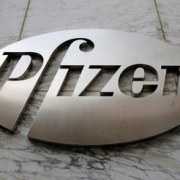The U.S. Food and Drug Administration approved Sarepta Therapeutics’ Amondys 45 (casimersen) for patients with Duchenne muscular dystrophy (DMD) who have a confirmed mutation amenable to exon 45 skipping.
Three biopharma companies recently shuttered their clinical programs after either their drug compounds failed clinical trials or interim futility analysis suggested they were unlikely to meet their clinical endpoints.
Less than a month after the failure of a Phase III Duchenne muscular dystrophy (DMD) trial, Switzerland-based Santhera Pharmaceuticals announced a corporate restructuring that includes the termination of 50 percent of the company’s workforce.
Santhera Pharmaceuticals halted a late-stage clinical trial of Puldysa (idebenone) in patients with Duchenne muscular dystrophy (DMD) after data from an interim analysis concluded the study was unlikely to meet the primary endpoint, the Swiss company said.
Shares of Solid Biosciences skyrocketed in trading after the company announced the U.S. Food and Drug Administration lifted the clinical hold on the IGNITE DMD Phase I/II clinical trial.
Pfizer Inc. said a third patient had to be hospitalized after being treated with the company’s experimental gene therapy for a rare degenerative muscular condition, but said the safety profile still supports launching a larger late-stage trial of the treatment.
Pfizer Inc. is investing $500 million to expand a manufacturing facility in Sanford, North Carolina, that plays a central role in the company’s efforts to become a major player in gene therapy.
Sarepta Therapeutics Inc. was informed that an adverse event report was erroneously submitted to the U.S. health regulator regarding an ongoing study of the company’s gene therapy for Duchenne muscular dystrophy (DMD).
Research from three clinical trials supports that Sarepta Therapeutics’ Exondys 51 slows respiratory decline in DMD.
Pfizer’s IV Revatio, when added to inhaled nitric oxide, failed to meet the primary efficacy endpoint in treating newborns with persistent pulmonary hypertension in a Phase III study.





